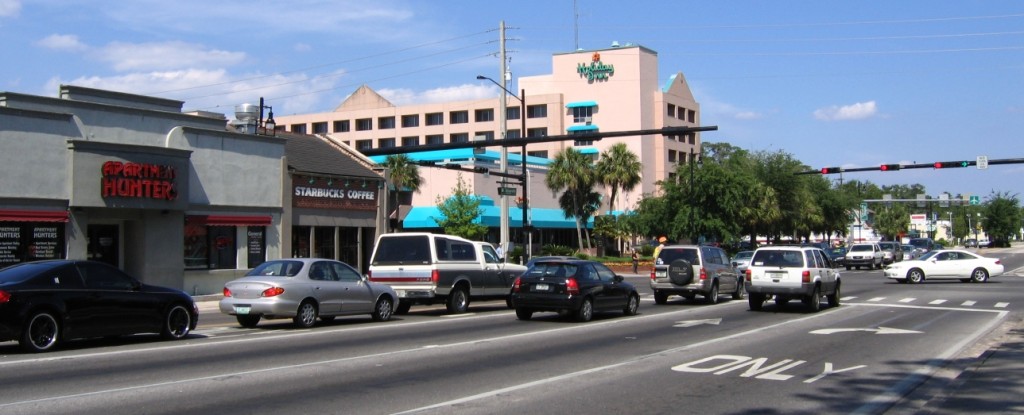-
AAA Insurance, Debbie Owen-Pirkle
1201 Nw 13Th St, Gainesville, FL 32601352-373-7801 x2245
-
Aimee Roughton
, Gainesville, FL
-
Albert Bodie
, Gainesville, FL
-
American Auto Insurance Agency
603 Nw 10Th Ave, Gainesville, FL 32601352-373-3855
-
American Auto Insurance South
3317 Sw Archer Rd, Gainesville, FL 32608352-378-4466
-
Anchor Insurance Agency
4424 Nw 13Th St Ste C12, Gainesville, FL 32609352-378-6400
-
Aubrey Rogers Insurance Agency
2400 Nw 6Th St, Gainesville, FL 32609352-373-2003
-
Bill Matchell Insurance Agency
140 Nw 75Th Dr Ste A, Gainesville, FL 32607352-332-6881
-
Bill Yawn Insurance Agency
4020 W Newberry Rd Ste 600, Gainesville, FL 32607352-372-3232
-
Bo Greene Insurance Agency
2783 Sw 87Th Dr Ste 100, Gainesville, FL 32608352-333-1123
-
Castellani Insurance Group
3545 Sw 34Th St Ste D, Gainesville, FL 32608352-378-0939
-
Chip Williams & Associates
3669 Sw 2Nd Ave, Gainesville, FL 32607352-373-0775
-
Cotton’s All Lines Insurance
1222 Nw 16Th Ave, Gainesville, FL 32601352-338-1222
-
Craig Krautkramer
, Gainesville, FL
-
Darr Schackow Insurance Agency
5200 W Newberry Rd Ste B, Gainesville, FL 32607352-338-0552
-
Dick Howells Insurance Agency
5109 Nw 39Th Ave Ste F, Gainesville, FL 32606352-375-8568
-
Donna Mann
4817 Sw 34Th St, Gainesville, FL 32608352-395-7552
-
Eddie Dugger
3720 Nw 43Rd St Ste 100, Gainesville, FL 32606352-375-7511
-
Ellett Insurance
905 Nw 56Th Ter, Gainesville, FL 32605352-331-8044
-
Express Insurance & Tax Service
330 Ne 39Th Ave Ste B, Gainesville, FL 32609352-371-6667
-
Frank Hickox Insurance Agency
4061 Nw 43Rd St Ste 10, Gainesville, FL 32606352-372-0444
-
H Emory Davis Insurance Agency
2622 Nw 43Rd St Ste A2, Gainesville, FL 32606352-377-2060
-
Harbor & Associates Insurance
921 Nw 13Th St, Gainesville, FL 32601352-372-4141
-
Heslin Insurance
3131 Nw 13Th St Ste 31, Gainesville, FL 32609352-371-6322
-
Hilb, Rogal & Hobbs
4880 W Newberry Rd Ste 100, Gainesville, FL 32607352-378-2511
-
Ian Thygesen
, Gainesville, FL
-
Insurance World of Gainesville
830 Nw 13Th St, Gainesville, FL 32601352-377-7283
-
Jackie Swanger
, Gainesville, FL
-
James Harmon Insurance Agency
5538 Nw 43Rd St Ste B, Gainesville, FL 32653352-376-2524
-
Janis Postma
, Gainesville, FL
-
Jeremy Sandor
, Gainesville, FL
-
Jim Wilson Jr
3909 W Newberry Rd Ste B, Gainesville, FL 32607352-371-4444
-
John A Morrison
2950 Sw Archer Rd Ste D, Gainesville, FL 32608352-378-3395
-
John Gachago
2725 Sw 91St St Ste 120, Gainesville, FL 32608352-283-8847
-
Johnson & Fletcher Insurance
3225 Nw 13Th St, Gainesville, FL 32609352-373-4381
-
Judy Locascio
4056 W Newberry Rd, Gainesville, FL 32607352-335-2505
-
King Agency of Gainesville
2321 Nw 41St St, Gainesville, FL 32606352-377-0420
-
Latoya Mccarley
, Gainesville, FL
-
Lee Crane Insurance Agency
4020 W Newberry Rd Ste 400, Gainesville, FL 32607352-375-0500
-
Love Insurance
2216 Sw Archer Rd, Gainesville, FL 32608352-376-4357
-
Lucas Minehart
, Gainesville, FL
-
Makai Bruun
, Gainesville, FL
-
Marcus Wigfall
, Gainesville, FL
-
Margaret Ruddy
, Gainesville, FL
-
Mark McGriff
1120 Nw 13Th St, Gainesville, FL 32601352-372-8406
-
McGriff & Williams Insurance
3501 W University Ave Ste A, Gainesville, FL 32607352-371-7977
-
Michael Carroll
140 Nw 75Th Dr Ste B, Gainesville, FL 32607352-332-5442
-
Mickey Rawls
1905 Nw 13Th St # 1, Gainesville, FL 32609352-377-1000
-
Mickey Rawls
3131 Nw 13Th St Ste 5, Gainesville, FL 32609352-376-3361
-
Millard Waldorff
4004 Nw 13Th St, Gainesville, FL 32609352-371-2204
-
Monique Easterling
, Gainesville, FL
-
Mr Insurance
821 Nw 13Th St, Gainesville, FL 32601352-371-4357
-
Nantz Insurance Agency
2770 Nw 43Rd St Ste C, Gainesville, FL 32606352-367-1050
-
Partners Insurance Agency
4040 W Newberry Rd Ste 950, Gainesville, FL 32607352-332-0180
-
Paul Ferraro Insurance
7208 W University Ave, Gainesville, FL 32607352-331-2760
-
Paul M Green & Associates
2441 Nw 43Rd St Ste 5B, Gainesville, FL 32606352-372-9789
-
Perry, McGriff, Johnson & Fletcher Insurance
3225 Nw 13Th St, Gainesville, FL 32609352-373-4381
-
Pete Nash Insurance Agency
4010 W Newberry Rd Ste C, Gainesville, FL 32607352-372-1400
-
Rick Vandiest
, Gainesville, FL
-
Ron Trowell Insurance Agency
7731 W Newberry Rd Ste A2, Gainesville, FL 32606352-332-1875
-
Rubicon Insurance
1820 Ne 2Nd St, Gainesville, FL 32609352-377-0474
-
Scarborough Company Insurance
2811 Nw 41St St, Gainesville, FL 32606352-377-2002
-
Shawna Zisa
, Gainesville, FL
-
Stefanie Cubbedge
16 Sw 2Nd Ave, Gainesville, FL 32601352-373-0333
-
Steve Taber Agency
5310 Nw 8Th Ave Ste 1, Gainesville, FL 32605352-377-9819
-
Sunshine State Insurance
1111 Nw 23Rd Ave, Gainesville, FL 32609352-371-9696
-
Terri Buccola
, Gainesville, FL
-
Vanessa Paley
, Gainesville, FL
-
Vera Olton
, Gainesville, FL
-
Vernon Horsley
, Gainesville, FL
-
Walter Agency
420 Nw 39Th Ave Ste B, Gainesville, FL 32609866-586-6073
-
Wendy Lapointe
611 Nw 60Th St Ste D, Gainesville, FL 32607352-331-3000
-
William Wonser
, Gainesville, FL
-
Willis of Florida
4880 W Newberry Rd Ste 100, Gainesville, FL 32607352-378-2511
How much is car insurance in Gainesville, FL?
Gainesville, FL is located approximately in the center of the state of Florida, home to the University of Florida and the renowned Shands Hospital at the University of Florida. The University and the Hospital are the major employers in the area along with businesses and services to support the individuals who work at these employers.
With an estimated population of over 132,000 insurance protections for automobiles is important.
The State of Florida requires all registered vehicles to have car insurance under the financial responsibility law.
Florida has minimum legal requirements for car insurance as follows:
- Bodily injury liability – This covers your responsibility for injury to others in an accident. – Limits of $100,000 per person and $300,000 per accident are required.
- Property damage liability – This covers your responsibility for damage to the property of others in an accident. – A limit of $50,000 per accident is required.
- Personal injury protection – This covers you for injury to yourself or your relatives regardless of whether or not you cause the accident up to the limits of the policy. – A limit of $10,000 per accident is required.
Optional Insurance Coverage
 You may wish to carry other types of coverage to further protect you and your family. These coverage and a brief explanation are as follows:
You may wish to carry other types of coverage to further protect you and your family. These coverage and a brief explanation are as follows:
- Personal injury protection – Insurance companies often include a deductible in this coverage and you may want to pay additionally to avoid the deductible. This is one reason why insurance companies in Florida ask about your medical insurance. Your medical insurance may respond also in an accident.
- Comprehensive coverage – This type of insurance pays for damage to your own vehicle for such perils as fire, theft, animal damage, weather damage, and glass less a deductible that you, as owner, determine.
- Collision coverage – This type of insurance pays for collision damage to your own vehicle whether or not it is your fault. This, too, is subject to a deductible, which you determine.
Deductibles can vary from $100 per accident up to $1,000 per accident.
The amount of the deductible is determined by what you believe you can afford in the event of an accident and your agreement with the lender from whom you received the money to purchase the car.
Remember, too, that occasionally individuals have accidents that are close together and the deductible applies per accident. This can lead to being assessed a deductible as the result of an accident one month and then another deductible being assessed as the result of an accident the next month.
Insurance Rates
Each state has its own requirements for financial responsibility and you must follow these limits. The differences in rates vary because of the general climate of legalities within a state.
For example, car insurance rates in Maine are less than those in Louisiana because people in Maine do not tend to sue about car accidents. In Louisiana, litigation appears to be a hobby akin to that of pursuing the lottery. It is to be noted that neither Maine nor Louisiana are proponents of no-fault insurance.
Insurance companies file statistics with the states to justify the rates they charge. These statistics reflect the company’s experience with losses in a certain area. The areas are separated by age, driving experience, and other personal variables. These help determine the basis for rates in the state.
Rates in Florida appear to vary also from area to area. Insurance rates in the Orlando area, which has a number of tourist attractions, vary from those in the Gainesville area, which has academic and medical institutions. It would take an exact investigation of the statistics to determine the differences, which is not the ultimate purpose of this article.
PIP or No-Fault Insurance
Florida is one of several states that require Personal Injury Protection or no-fault insurance. These states at present are:
 Florida
Florida- Michigan
- New Jersey
- New York
- Pennsylvania
- Hawaii
- Kansas
- Kentucky
- Massachusetts
- Minnesota
- North Dakota
- Utah
This no-fault insurance provides coverage for injury to the owner or his relatives in the event of an accident without regard to who is at fault in the accident.
The states have individually interpreted this type of coverage limiting the individual’s right to sue depending separately upon the amount of the damage, result of the accident, and whether or not the individual has sustained injury in a certain way, i.e. permanent disability or disfigurement.
The original intent of no-fault insurance was to ensure that the people insured are reimbursed for losses by their own insurance company rather than as part of an adversarial system referred to in law as a tort system.
This is done by making the insurance contract respond to injury to the individual and damage to the property of the individual.
Those in favor of no-fault insurance maintain that auto accidents are inevitable and that at-fault drivers should not necessarily be punished. The point was also made that uninsured motorists were essentially never held responsible for their liability because they are unable to pay for their liability. No-fault insurance would be a benefit to states with high numbers of uninsured motorists.
Those against no-fault insurance, on the other hand, state that dangerous drivers who do not pay for the damage they cause encourages risky behavior. All that happens is that they pay higher insurance premiums, not additional monetary damages for accidents.
Then, too, those against no-fault insurance maintain that legitimate victims with less overt handicaps find it hard to recover costs to pay for their injuries under no-fault.
Comparable Insurance Quotes in Gainesville, Florida
When asking for a quotation, you need to have information available to facilitate the quote. You will need:
- Names, dates of birth, and license number for all drivers
- Driving record for all drivers
- Year, make, and model of all vehicles owned
- Caution – do not leave out drivers or vehicles even if the vehicles are incapacitated. Florida requires that all cars be insured.
Liability limits:
- $100,000 per person/$300,000 per accident Bodily Injury Liability – damage to the person of others
- $50,000 per accident Property Damage Liability – damage to the property of others
- $10,000 Personal Injury Protection – no-fault
Damage to owned vehicle:
- Comprehensive coverage – $500 deductible
- Collision coverage – $500 deductible
Sample Quotes
 When requesting sample quotes, it was posited that the insured would be a married couple in which the husband was 55 and the wife 51 years old.
When requesting sample quotes, it was posited that the insured would be a married couple in which the husband was 55 and the wife 51 years old.
They own their own home and commute 25 miles one way. They drive a 2014 Toyota Corolla, recently purchased and have the coverage above stated. They both have health insurance and clean driving records.
Insurance Company A $966.80 on a yearly basis.
Insurance Company B $920.00 on a yearly basis.
Comparison-Shopping for Insurance
In this particular case, the difference between the costs of insurance for a year is very little. However, applying the actual facts for a quotation may result in credits that may be applied.
One of the companies quoted gives credits if one of the applicants has graduated from a PAC-10 college or is a member of certain associations. Security protection on your car can result in a credit. Defensive driving courses can also give credits.
It is recommended that everyone take precautions to comparison-shop for insurance every year. This will allow verification that the best available rate has been offered for your insurance.

